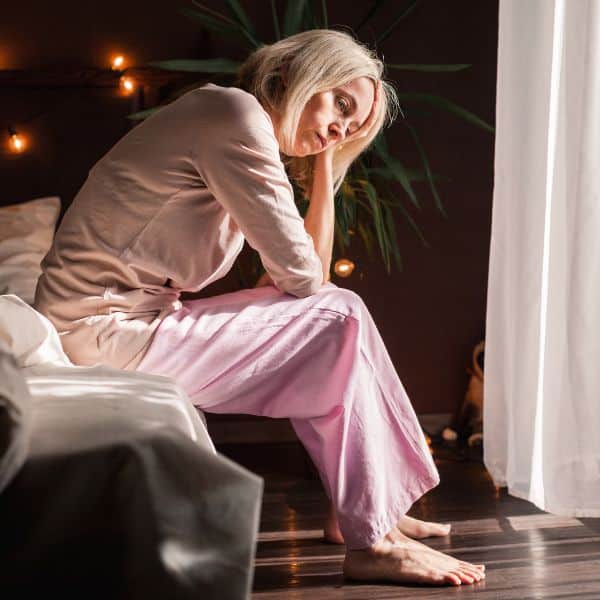Struggling to fall asleep or stay asleep through the night is an all-too-common issue, leaving many people exhausted and searching for natural solutions. Among the growing range of complementary therapies, reflexology has gained attention for its potential to promote relaxation and improve sleep quality. By applying gentle pressure to specific points on the feet, hands, or ears—each thought to correspond to different parts of the body—reflexology aims to restore balance and ease tension. But how effective is reflexology for insomnia?
What The Research Says
Research into reflexology for insomnia shows generally positive but mixed results. Several meta-analyses suggest that reflexology can significantly improve sleep quality and reduce fatigue across different populations, though most reviews note considerable variation in study design and potential bias. Individual trials have reported benefits in groups such as older adults, postmenopausal women, cardiac patients, children with autism, and healthy adults, with improvements in sleep scores and overall wellbeing. However, not all studies show clear effects, and some find reflexology no more effective than simple relaxation or foot baths.
Overall, while the evidence is encouraging, it remains inconsistent. Many studies are small, rely on self-reported sleep measures, and lack rigorous blinding or long-term follow-up, making it difficult to draw firm conclusions about reflexology’s true impact on sleep quality.
Possible Mechanisms & Theoretical Rationale
If reflexology helps improve sleep, several mechanisms may be at play, though none are definitively proven. It may promote relaxation by activating the parasympathetic nervous system and reducing stress, making it easier to fall and stay asleep. Its soothing effects could also relieve pain or tension that interfere with rest. Some research suggests reflexology triggers endorphin release, helping to ease anxiety and regulate the sleep–wake cycle, while its positive impact on mood and stress levels may further support better sleep. There are also theories that it enhances circulation or autonomic balance, though these remain speculative. Overall, the exact mechanisms are not yet confirmed by robust scientific evidence.
Strengths & Limitations of the Evidence
The existing research on reflexology for insomnia presents several promising findings. Across diverse groups—such as older adults, postmenopausal women, children, and patients with various health conditions—studies show consistent signs of improved sleep quality. Reflexology’s appeal also lies in its accessibility: it is non-invasive, low-risk, and relatively affordable, making it a useful complementary therapy to support other sleep interventions. In addition, many trials report positive effects not only on sleep but also on emotional wellbeing, including reductions in anxiety and improvements in mood. These combined results suggest that reflexology may enhance sleep through multiple, interconnected pathways.
However, while the evidence is encouraging, it is important to acknowledge several key limitations and cautions.
Limitations
There are several limitations and cautions to keep in mind when interpreting the research on reflexology for insomnia. Studies often vary widely in their methods—using different durations, pressures, reflex points, session frequencies, and overall treatment lengths—which makes direct comparison difficult. Most research also relies on subjective measures such as sleep diaries or the Pittsburgh Sleep Quality Index, rather than objective tools like polysomnography or actigraphy that can more accurately capture changes in sleep patterns.
Blinding is another challenge, as it’s difficult to create a true placebo or “sham” reflexology treatment that doesn’t still produce some tactile or relaxation effects. Many studies also involve small sample sizes and show a moderate to high risk of bias due to poor reporting or underpowered designs. In addition, few include long-term follow-up to assess whether any benefits are sustained over time. Finally, because many trials are conducted in patient populations with complex health issues—such as those taking medication, experiencing pain, or recovering in hospital environments—it can be hard to separate the effects of reflexology itself from other factors influencing sleep.
Given these limitations, reflexology cannot yet be recommended as a standalone treatment for insomnia but may serve as a supportive, complementary approach for some people.
Practical Guidance To Using Reflexology For Insomnia
If you’re considering reflexology for insomnia, start by choosing a qualified practitioner experienced in sleep-related care. Consistency matters—sessions once or twice a week for several weeks may be most effective, typically lasting 10–30 minutes per foot and focusing on reflex points linked to sleep regulation.
Reflexology should complement, not replace, good sleep habits such as keeping a regular bedtime, limiting caffeine, and reducing screen use before bed. Track your progress with a sleep diary or questionnaire, and keep expectations realistic, as results can be gradual. The therapy is generally safe, but avoid it on injured or infected areas and consult a healthcare professional if insomnia persists or if you have underlying health concerns.
How Good Is Reflexology For Insomnia?
Reflexology shows encouraging potential as a complementary therapy for improving sleep, with studies reporting better sleep quality, reduced fatigue, and improved wellbeing. However, the evidence remains inconclusive due to small sample sizes, inconsistent findings, and reliance on subjective measures. For those with insomnia, reflexology may offer gentle, supportive benefits when used alongside established treatments such as CBT-I and good sleep hygiene, though it should not replace them. Future research should focus on larger, well-designed trials using objective sleep measures, standardised treatment protocols, and long-term follow-up to clarify its true effectiveness and underlying mechanisms.
Struggling To Sleep?
If you’re struggling with sleepless nights and want to explore how reflexology could support better rest, we’re here to help. Our experienced reflexologists can guide you through a tailored approach that complements other healthy sleep strategies, helping you relax, unwind, and restore balance.
Get in touch today to book a reflexology appointment or speak with one of our professionals about how reflexology can support you in managing insomnia alongside other treatments.





